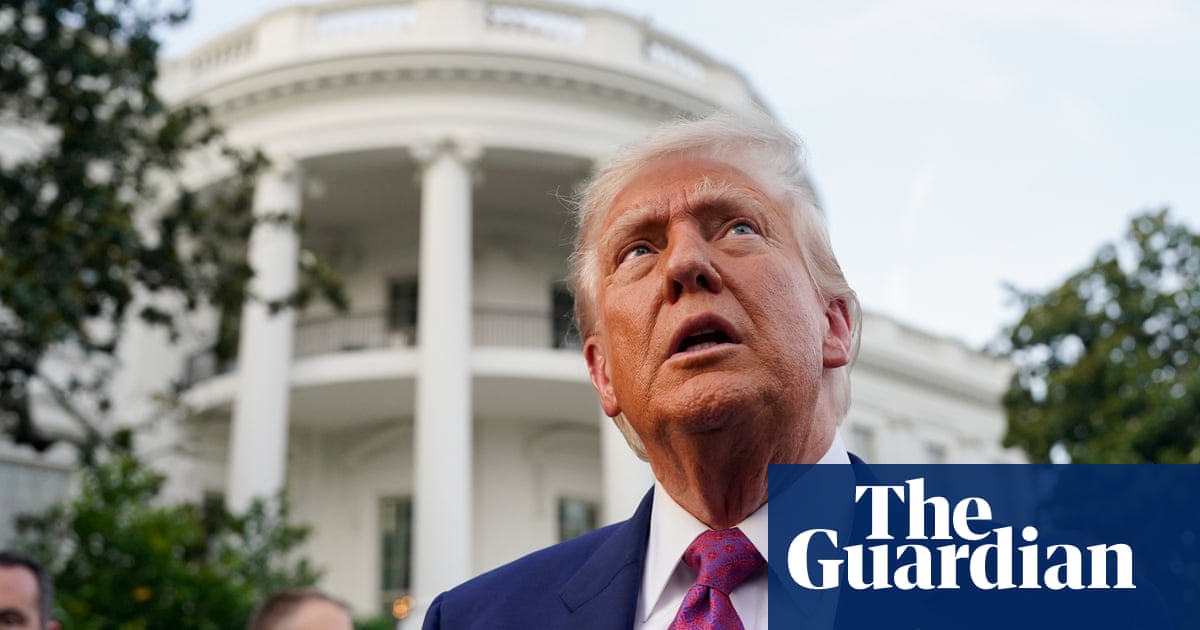Trump’s Balancing Act: The U.S. Stance on Israel’s Airstrikes Against Iran
Donald Trump finds himself in a precarious position as he claims knowledge of Israel’s recent airstrike plans aimed at Iran while simultaneously distancing the U.S. from any active involvement in the operation. This complex scenario unfolds against the backdrop of a shifting White House narrative that portrays a combination of diplomatic strategy and military cooperation.
The Messy Shift in Messaging
The White House’s narrative took a sharp turn from Marco Rubio’s initial characterization of the Israeli strikes as a “unilateral action” to Trump’s assertive claim of being “fully in the loop.” In a post on Truth Social, Trump emphasized that these strikes were a culmination of a 60-day ultimatum he had given Iran concerning its nuclear program. “Today is day 61,” he asserted, candidly conveying his frustrations with Iran’s inability to reach an agreement.
This framing creates a classic good cop-bad cop dynamic in Trump’s relationship with Israeli Prime Minister Benjamin Netanyahu. The tumultuous history between the two leaders adds layers of intrigue to their dealings. As Trump seeks to portray these airstrikes as essential leverage in negotiating with Iran, he publicly shifts from opposing military action to supportive rhetoric.
The Divergence of U.S. Responses
Trump’s approach, however, isn’t without contradictions. Following the strikes, notable discord in the U.S. response has raised eyebrows. While he praised Israel’s actions, there were also indications of cautiousness. The hasty evacuation of U.S. personnel from the region, coupled with Rubio’s previously disapproving comments, casts doubt on whether the administration was fully prepared for such a conflict escalation. Analysts question whether Israel might have acted independently to present the U.S. with a fait accompli.
Elliott Abrams, a former diplomat, noted that Israel seemed to gamble on Trump’s leadership, pushing for strikes despite his earlier inclination towards diplomacy. The tension between an apparent military escalation and a diplomatic approach creates a complex image of U.S.-Israeli relations.
Israel’s Actions: A Question of Coordination
Although Israel provided preliminary warnings regarding the airstrike, the extent of U.S. coordination remains murky. Trump’s subsequent comments suggest he was not entirely unaware of the operation, leading to speculation about whether his attempts to downplay U.S. knowledge were strategic repositioning tactics. Senior Israeli officials later hinted that Trump had tacitly agreed to the strikes, complicating the narrative even further.
During a press briefing, Trump explained that he cautioned against the strikes, fearing they could derail his diplomatic overtures toward Iran. Yet, the rapid evacuation of personnel within a 24-hour framework raises questions: what did Trump know, and when did he know it?
Military Preparations and Potential Escalations
In the days leading up to the airstrikes, U.S. military actions hinted at a growing readiness for potential conflict. Reports emerged that the U.S. had replenished munitions for Israel’s Iron Dome missile defense systems and positioned B-52 bombers at key airbases, suggesting a looming response to potential Iranian retaliation.
Furthermore, the comprehensive nature of the Israeli strikes, which involved over 200 jets targeting more than 100 locations across Iran, points to a type of military preparation that could not have occurred without U.S. awareness. This complexity underscores that the Israeli efforts were more than just unilateral actions, but instead possibly a part of a larger, albeit ambiguous, strategy involving U.S. intelligence support.
Analysis of Strategic Implications
Despite the Israeli strikes successfully targeting various Iranian military assets, critical elements of Iran’s nuclear program, such as the Fordow enrichment facility, remain intact. The non-targeting of this key site suggests that the strikes, while significant, may not have accomplished their ultimate objective of crippling Iran’s nuclear ambitions.
The U.S. role in these developments raises critical questions about its foreign policy priorities and strategies. Analysts worry that Israel might be maneuvering to involve the U.S. more deeply in a conflict that could escalate beyond regional borders. By thinking strategically, both the Trump administration and Israeli officials may be willing to take calculated risks regarding military action and diplomatic negotiations.
In navigating this multifaceted diplomatic and military landscape, Trump’s claims about his role in the Israeli strikes against Iran expose a delicate balance of power, strategy, and public messaging that could define the future of U.S.-Middle East relations. As both nations move forward, the evolving dynamics will undoubtedly have ramifications that extend far beyond their immediate geopolitical interests.


